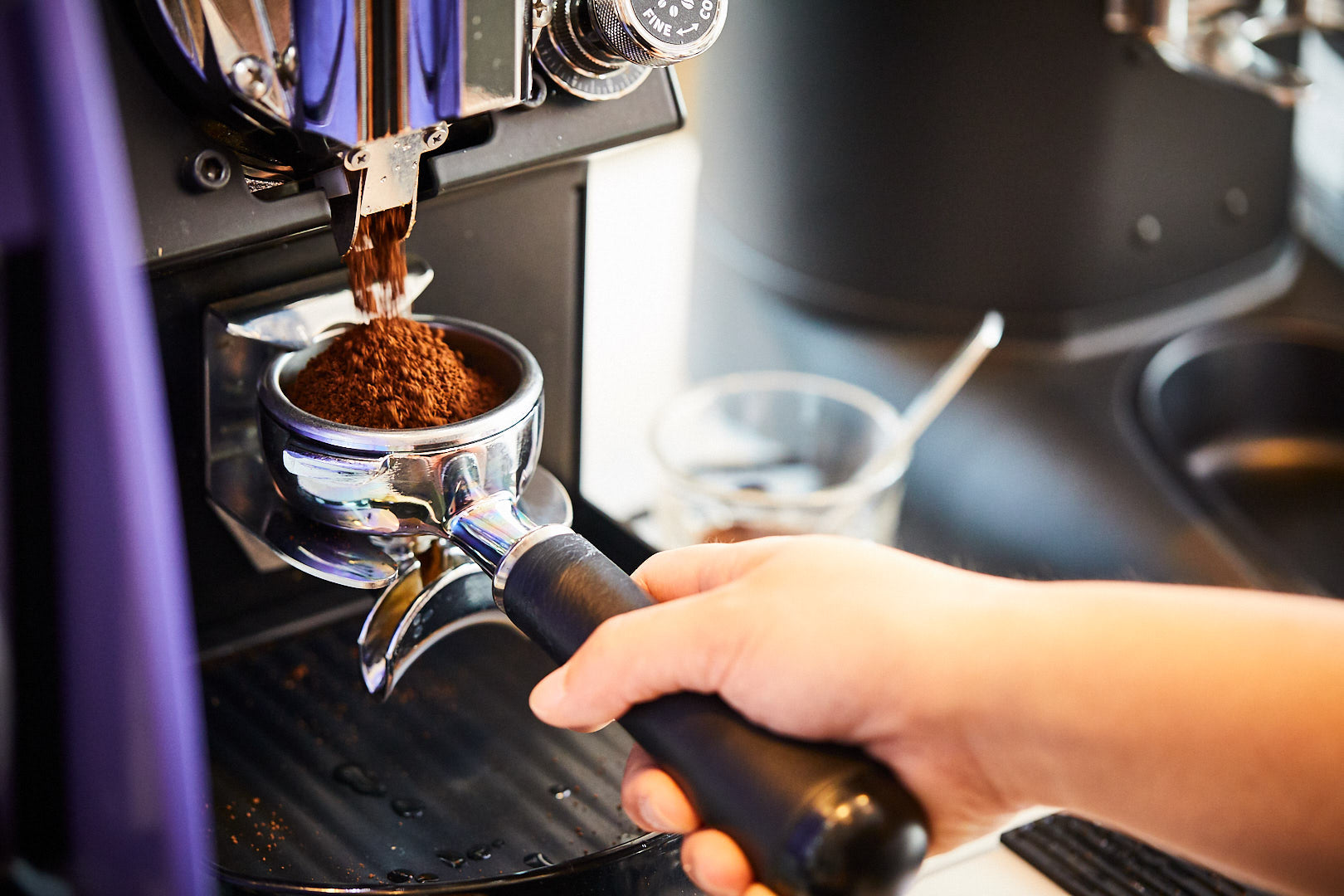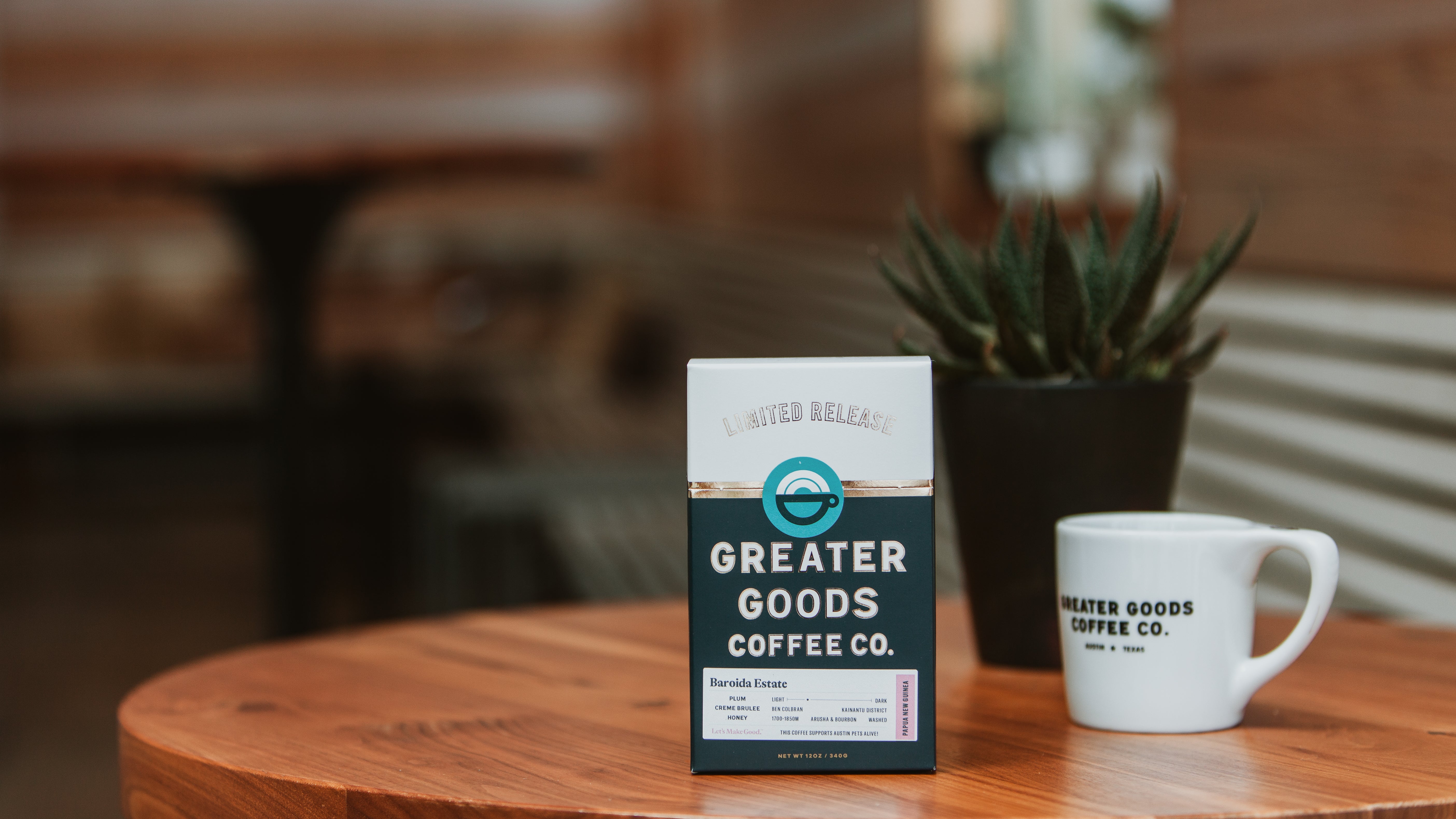No one really knows if it'll rain in Austin today. It’s pretty typical for April; the natural light in the cafe is cooler than usual, diffusing a pale gray through the vinyl siding. I have two drinks in front of me: a cortado and a pour over, both a washed coffee from Baroida Estate, from the Eastern Highlands of Papua New Guinea. The cortado is sweet. The coffee is hot.

I’ve never been to Papua New Guinea. It seems pretty unlikely that I’ll get there in this lifetime; there aren’t many flights going that way from Texas, and I’m pretty scared of flying anyway, and also the jungle. This coffee, and the palm oil in my protein bar, are my only postcards. Postcards I can taste. So... maybe more like stamps.

The country is surrounded by Indonesian islands, but the flavors in this coffee are much sweeter than expected from this part of the world. First, a distinct vanilla bean aroma. Then, a fluffy mouthfeel. It’s round and creamy, but light-bodied. On the first sip I taste caramel. A hint of raisin. Dried fruit. As it cools slightly, ripe plum. Vanilla custard. Brown sugar. Re: the cortado - all of the above, plus a note of candied pecan (I may have licked the gibraltar clean, can neither confirm nor deny).
In the specialty coffee world, PNG is a new kid on the block. Coffee production here, as is true for many producing countries, began with colonialism. The Germans and the British planted Arabica trees in and around the capital city, Port Moresby, in the late 1800s, and over the next century the plant spread to more remote parts of the country.

Ben Colbran purchased the land for Baroida Estate from a native named Taro in the 1960s. Together with his wife and three children, they left New Zealand for the wild highlands of Papua New Guinea and started growing coffee. These days the operation is managed by Colbran’s son Nicol, and his sons, Chris and Rhett. The estate covers around 220 hectares - that’s about 543 acres, or 411 football fields, or 1.5 Zilker Parks - and is divided into 29 plots, each plot a single variety of coffee.
The overall tastiness of this washed PNG is thanks in part to the Colbrans’ meticulous quality control procedures. Each harvest batch is pulped, processed, dried, and assessed in separation. The coffee is washed using disk pulpers, fermented for 36 hours, and then the remaining mucilage is removed through natural agitation.

As for our ultra limited-release natural process (in-store only), the cherries are carefully sorted and laid on raised beds to sundry, leading to a juicy acidity and an even creamier body. *Pro-tip: stop by our E5 cafe in the next month or so and try the two side by side. The processing makes a world of a difference.
Colbran Coffeelands also works with surrounding smallholders, offering processing and marketing assistance. Those farmers grow coffee on small plots of land more aptly labeled “coffee gardens”, and make up 85% of the total production in the country. Although these small farms yield incredibly high-quality coffees, they also yield their fair share of challenges.
Papua New Guinea is home to hundreds of indigenous tribes with over 800 different languages, making it near impossible to organize farmers into collectives or cooperatives. Less than 10% of the population has internet access, and all too often producers aren’t privy to the market knowledge that could provide bargaining power with buyers.
Most of all, the logistical challenges in getting coffee from point A to point B are innumerous. While the boom in coffee production led to the creation of many new roads and bridges, the infrastructure is still incredibly fragile. Annual and unpredicted rains can render roads impassable for weeks at a time, bringing the movement of coffee to a full stop.
Eddie Rabbitt’s I Love A Rainy Night is playing on the Sonos, and I take the last few sips of my pour over. It’s cold, but I wouldn’t dare waste it. Give it a try next time you’re in the shop, and don’t forget your umbrella.




